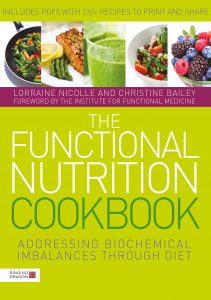 Functional nutrition looks beyond intervening in the symptoms of health problems and addresses the ways in which diet can be used to help correct underlying imbalances in the body. In The Functional Nutrition Cookbook, Lorraine Nicolle and Christine Bailey address a range of different issues, including gastro-intestinal, immune system and hormone imbalances, explaining the intricacies of each problem and offering useful tips on how to truly make a difference through diet. As part of Nutrition & Hydration Week, we share an exclusive extract from the book on detoxification, full of useful tips and recipes to try. Continue reading
Functional nutrition looks beyond intervening in the symptoms of health problems and addresses the ways in which diet can be used to help correct underlying imbalances in the body. In The Functional Nutrition Cookbook, Lorraine Nicolle and Christine Bailey address a range of different issues, including gastro-intestinal, immune system and hormone imbalances, explaining the intricacies of each problem and offering useful tips on how to truly make a difference through diet. As part of Nutrition & Hydration Week, we share an exclusive extract from the book on detoxification, full of useful tips and recipes to try. Continue reading
diet
Is there a secret to healthy ageing?
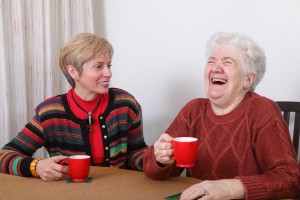 Ageing seems to be the only available way to live a long life (Daniel Auber). In fact, some would say that the business of ‘getting older’ brings so many benefits that we should positively embrace it.
Ageing seems to be the only available way to live a long life (Daniel Auber). In fact, some would say that the business of ‘getting older’ brings so many benefits that we should positively embrace it.
Ageing is certainly high on the current news and political agendas. As a nation, we’re heading for an unprecedented population shift towards older people. (The King’s Fund predicts that within 18 years, the number of 65-84 year-olds and those aged 85+ years will rise by 39% and a staggering 106%, respectively, whereas the number of people in the 15-64 year-old age group is set to increase by a paltry 7%).
The problem is, we don’t appear to be ageing very well. And this hampers our ability to see the benefits and enjoy the ‘golden years’. For too many people, mid- and later-life is dominated by the pain and disability of degenerative diseases like CVD, cancer and dementia. Recently, for example, Diabetes UK told us that 700+ people are diagnosed with diabetes every day.
So what, if anything, can be done? Is there a secret to healthy ageing?
Well, yes, there may be: it’s called anti-inflammation. As you age, you gradually become more predisposed to the type of low-grade yet chronic, insidious inflammation that promotes degeneration and disease. As the lifestyle medicine authority Dr Gary Egger describes in his paper ‘In search of a germ theory equivalent for chronic disease’, our environment has become increasingly more inflammatory since pre-Neolithic times. Pre-Neolithic individuals lived within a predominantly anti-inflammatory mileu of low calorie intake (compared to the level of energy expenditure), a low omega-6-to-omega-3 ratio and good levels of monounsaturated fats, fish, fibre, vegetables and nuts. In today’s environment, these are typically replaced with inflammatory triggers (‘anthropogens’) like pollution, endocrine disrupting chemicals, being sedentary, a high omega 6-to-omega 3 ratio, saturated and trans-fats, sleep deprivation, chronic stress, junk foods and obesity. Indeed, the medical journals are stuffed to the gills with scientific papers demonstrating that most, if not all, age-related chronic diseases are driven in part by inflammation. And this applies not only to classic inflammatory conditions like autoimmune arthritis, but also to Alzheimer’s disease, cardiovascular disease, diabetes, cancer, osteoporosis, depression and others.
Hence, the trick to a long, healthy life is to stay out of the ‘inflammazone’.
But, hang on, this isn’t necessarily as simple as it sounds. It’s not just about taking anti-inflammatories, whether pharmaceutical (like ibuprofen) or nutritional (like curcumin from turmeric), as these offer merely allopathic, ‘sticking plaster’ remedies. The only effective long-term approach is a systems-based one, in which the focus is on identifying the pattern of inflammatory antecedents, triggers and mediators that is unique to the individual in question.
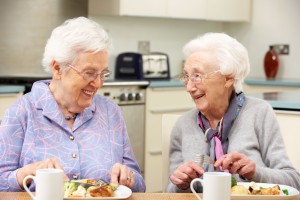 By all means, remove Egger’s anthropogens from the environment, and reinstate the anti-inflammatory inputs of pre-Neolithic times. This is an excellent start. But look also at the functioning of the key body systems. For all body processes, when they are in a state of dysfunction, become drivers of inflammation. Microbial imbalances in the gut, for example, can cause gastrointestinal hyperpermeability and immune dysfunction, leading to systemic inflammation. Poor detoxification processes can lead to an accumulation of toxic, inflammatory metabolites. Failing mitochondria (the batteries of your cells) can leak electrons that cause free radical damage and inflammation. Problems with glucose and insulin control mechanisms can result in sugars attaching to proteins in the body (a process called glycation), damaging these proteins and triggering inflammation. Exhausted adrenal glands can fail to produce sufficient cortisol to moderate any over-reactive inflammatory responses. And so the list goes on…
By all means, remove Egger’s anthropogens from the environment, and reinstate the anti-inflammatory inputs of pre-Neolithic times. This is an excellent start. But look also at the functioning of the key body systems. For all body processes, when they are in a state of dysfunction, become drivers of inflammation. Microbial imbalances in the gut, for example, can cause gastrointestinal hyperpermeability and immune dysfunction, leading to systemic inflammation. Poor detoxification processes can lead to an accumulation of toxic, inflammatory metabolites. Failing mitochondria (the batteries of your cells) can leak electrons that cause free radical damage and inflammation. Problems with glucose and insulin control mechanisms can result in sugars attaching to proteins in the body (a process called glycation), damaging these proteins and triggering inflammation. Exhausted adrenal glands can fail to produce sufficient cortisol to moderate any over-reactive inflammatory responses. And so the list goes on…
And, let’s face it, all chronic diseases are foreshadowed by years of decline in one or more body systems. Alzheimer’s, for example, is preceded by years of elevated homocysteine levels (which may be inflammatory), indicating a problem with a biochemical process called methylation. Methylation is crucial to healthy ageing in the brain. In fact, elevated homocysteine is such a strong predictor of future cognitive decline that every ‘healthy ageing’ strategy should include a homocysteine check. If you find your blood level is elevated, you should work on your nutrition and lifestyle to get it down to 7-8.
Now, you might ask, where is the evidence that it’s possible to exert some control on this sinister type of inflammation, that is, that you really can take action to change the way you age?
The evidence lies in the fast-developing area of science known as epigenetics. In recent years, epigenetics has taught us that the rate at which you age (and your propensity to specific diseases) is not limited to how your parents and grandparents aged, what diseases they got and how long they lived. Rather, it is more to do with how your lifelong environment, essentially your diet and your lifestyle, is influencing the ways in which your genes behave, including which genes are switched on and off. (Only a small proportion of your genes are active (expressed) at any one time; and this is determined by the way you live your life.)
Of particular interest to healthy ageing is the discovery that environmental inputs (such as those proposed by Egger above) promote inflammation at an epigenetic level, that is, by directly increasing the expression of inflammatory genes. Environmental inputs can also down-regulate genes that produce energy; they can silence genes that supress tumour growth; and they can speed up the rate at which telomeres get shorter. (Telomeres are the physical ends of chromosomes on DNA; and they get shorter, the faster you are ageing.)
What’s really exciting is that scientists think that such changes to gene expression are likely reversible – meaning that we may have more control over our destiny than was previously thought.
Unsurprisingly, the search is now on for interventions that can reverse such harmful changes in gene expression – and thus slow down the ageing process. To date, the intervention with the most evidence is the practice of eating less than normal, either by restricting calories daily, or by fasting intermittently.
Certain special nutrients (‘epigenetic nutrients’) have also recently been discovered to mimic the healthy ageing effects of eating less. These nutrients are found in grape skins, green tea, turmeric and cruciferous vegetables, to name but a few. Some of them, however, are notoriously hard to absorb, so for a truly therapeutic effect, their dietary intake may need to be supplemented.
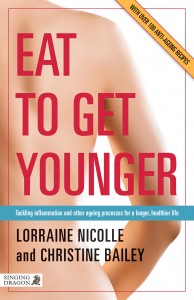 The best approach to healthy ageing, then, is one that promotes anti-inflammation, by preventing or even reversing harmful (epigenetic) changes to gene expression; and by optimizing the function of the key body systems. These ideas form the central theme of my recently published book Eat To Get Younger, (co-authored with colleague Christine Bailey). In it, we bring together the current thinking on the best changes to make for healthy ageing. Chapter topics include staying lean and preventing diabetes, supporting connective tissue health (skin, bones, gums, etc), keeping energised, making the most of your mind, memory and mood, staying as pain-free as possible, experiencing a trouble-free menopause transition, and keeping your digestive and immune systems in good working order.
The best approach to healthy ageing, then, is one that promotes anti-inflammation, by preventing or even reversing harmful (epigenetic) changes to gene expression; and by optimizing the function of the key body systems. These ideas form the central theme of my recently published book Eat To Get Younger, (co-authored with colleague Christine Bailey). In it, we bring together the current thinking on the best changes to make for healthy ageing. Chapter topics include staying lean and preventing diabetes, supporting connective tissue health (skin, bones, gums, etc), keeping energised, making the most of your mind, memory and mood, staying as pain-free as possible, experiencing a trouble-free menopause transition, and keeping your digestive and immune systems in good working order.
The opening chapters explain exactly why fasting is better than eating little and often; and how you can set about eating less without feeling deprived. You can then pick which of the remaining chapters to focus on, depending on the areas of ageing that are of most concern you. Each of these chapters contains advice on why things can start to go awry as you age, and what you can do about it, with advice on diet, lifestyle and nutritional supplements. The advice is supported by references to relevant scientific studies. And, to make it truly practical, we’ve also included meal plans and over 100 recipes. Ultimately, the recommendations are designed to support your key biological systems, reducing your overall inflammatory load and preventing your genes from misbehaving.
Looking at the balance of the evidence, there is more reason now than ever before, to positively embrace the ageing process, for there is so much that can be done to support vigour and wellbeing into your later years. And, for anyone who’s concerned that living a clean life is boring, that it can all too easily cramp one’s style, I’ll venture the view that pain, disability, fatigue and low mood, not to mention the endless hospital appointments and repeat prescriptions – they sound pretty boring to me!
Lorraine Nicolle MSc is a nutrition practitioner with a regular clinic in London. She has developed and taught on undergraduate nutrition and health degree programmes at British universities, and currently teaches on two university-validated courses. She also works with a dietary supplement company, delivering nutrition education sessions for healthcare practitioners; and she runs workplace nutrition programmes for businesses. She is a recipient of the CAM Award. www.lorrainenicollenutrition.co.uk
This article was originally featured on Bite the Sun.
VIDEO: Seven Steps for relieving painful bladder syndrome, with Philip Weeks
Although not much is known about painful bladder syndrome, a common and highly debilitating condition, there are simple, natural ways to relieve the symptoms. In this exclusive interview, Philip Weeks outlines 7 steps that enhance the body’s ability to heal itself, taken from his own 12-year experience of treating the condition.
He shows that despite being a difficult condition to treat, patients can derive huge benefits and increased wellbeing through these simple approaches.
To learn more about effective natural treatments for painful bladder syndrome, and common co-existing conditions, including allergies, fibromyalgia, irritable bowel syndrome and chronic fatigue, see Painful Bladder Syndrome:Controlling and Resolving Interstitial Cystitis through Natural Medicine.
Philip Weeks is a leading expert on natural medicine and nutrition and is a master herbalist and acupuncturist. He is an engaging, informative presenter and is renowned for his deep understanding and knowledge of ancient medicine. He is well versed in Ayurvedic, Arabic, Chinese and Greek medicine and utilises these systems by making them relevant to today. Philip is known for his pioneering, passionate and positive approach to helping people achieve their optimum health. He is a frequent lecturer on herbal medicine and holistic health.
© 2013 Singing Dragon blog. All Rights Reserved
First steps in promoting hair regrowth, for anyone affected by Alopecia and other hair-loss problems – with Vera Peiffer
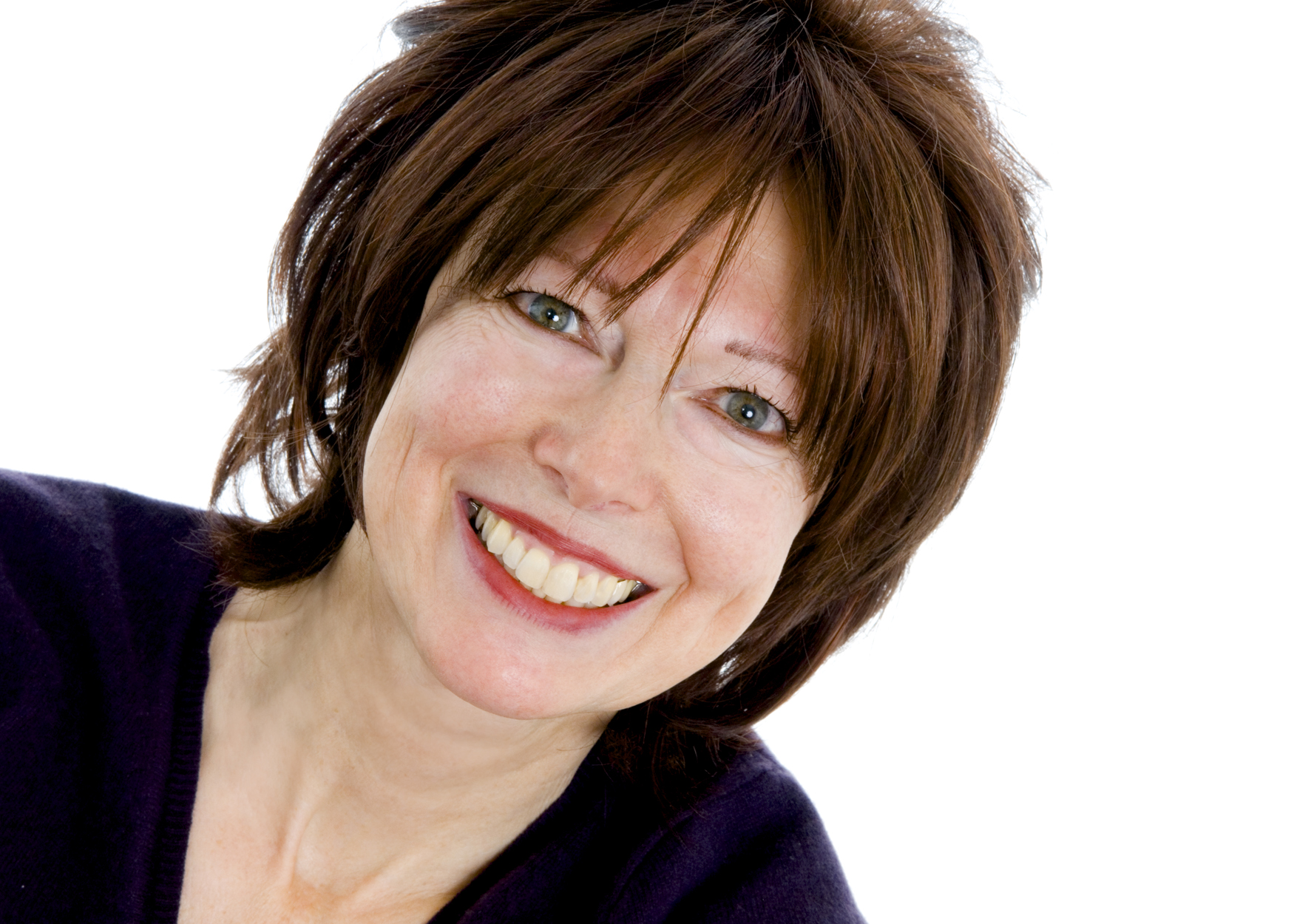 When your hair is falling out, you are not just having a problem with your hair, but also something else in your body, no matter whether you have other symptoms or not. As I’m explaining in my book Regrowing Hair Naturally, there is a reason why your hair is falling out. This reason is some form of toxicity.
When your hair is falling out, you are not just having a problem with your hair, but also something else in your body, no matter whether you have other symptoms or not. As I’m explaining in my book Regrowing Hair Naturally, there is a reason why your hair is falling out. This reason is some form of toxicity.
Water and hair loss
Toxicity in your body makes your body too acidic. While some acidity is very important for body processes to function correctly, over-acidity is a problem and can lead to hair loss. If you then also don’t drink any water during the day, the acidity stays in the body undiluted and this is where damage occurs.
If you are worried about your hair at the moment, it would obviously be important to find out which toxins are causing acidity in your body, but even if you don’t want to do this, at the very least start drinking good quality water. Increase your water intake every few days from 1 glass a day to 8 large glasses a day (approximately 2 litres a day). This helps dilute the acid in your body, no matter what has been causing the acid in the first place.
Drinking water is the first phase of detoxing. The second phase would be to take particular supplements (these are different for each person) which bind with the toxins and then take them safely out of the body. A hair sample test can establish exactly which supplements your body needs to carry out this conjugation phase of detox.
When you drink water, make sure the water is good quality. Filter it with a charcoal filter (Brita or similar) or have a water filter installed under your sink. If your water supply is fluoridised, I would suggest to drink bottled water as fluoride is not a great substance to have in your body. Don’t drink unfiltered tap water, no matter what your water company tells you. Chlorine in water needs to be filtered out, and your charcoal filter will do that for you.
Wheat and hair loss
Over 80% of my clients who have my hair/nail sample tests done have a problem with wheat. Some of them have a problem with all grains (rye, barley, oats etc).
Have a think about what you are eating for a typical breakfast, lunch and dinner. If your diet consists of muesli, sandwiches, pizza and pasta, this will have a major negative impact on your hair, even if you don’t have a wheat intolerance. What you need to eat is a little meat, plenty of vegetables and some carbs such as rice or potatoes. I know that this is inconvenient, especially for breakfast, but you are actually better off with bacon and eggs or an omlette for breakfast than with a muesli if you want to help your hair.
Foods you need to avoid are bread, pasta, pizza, biscuits, cakes, pasties and anything else that is made from wheat or gluten-free wheat. It is not enough if you change to gluten-free wheat as many people are not just intolerant to the gluten in the wheat but also to the rest of the grain.
Frequently Asked Questions:
Water:
Can’t I have juice instead of water?
Juice has a lot of sugar in it which makes the body acidic, and too much acidity is bad for your hair. Drinking juice also dehydrates you. There is really no replacement for water.
I find it hard to drink water. If I do, I have to run to the loo too often
Start with drinking sips of water throughout the day. If you need to pee a lot it means that you are completely dehydrated and / or that you are drinking too much too quickly.
Wheat:
I find it very hard not to eat pasta, bread and cakes. Do I really have to give them up for my hair to grow better?
I know it’s hard to give up wheat. Wheat is actually quite addictive, but if you want your hair back, you will need to at least drastically reduce your wheat intake. Wheat and other grains can actually stop the body from detoxing because they produce mucus in the body.
Is it OK to have glutenfree bread instead of normal bread?
Yes, gluten free is much better, but even that type of bread does not contain the nutrients your hair needs to grow, so make sure you have proteins and vegetables most of the time.
For more tips on hair regrowth, visit Vera Peiffer’s website: http://www.hairgrowthuk.co.uk/blog/ and read Regrowing Hair Naturally
More from Vera Peiffer
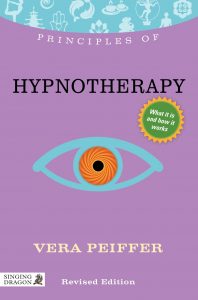 Principles of Hypnotherapy
Principles of Hypnotherapy
What it is, how it works, and what it can do for you
Vera Peiffer
This is an authoritative introduction to hypnotherapy explaining what it is, how it works, what its origins are, what to expect when being treated and how to find a reputable hypnotherapist. It also clarifies how hypnotherapy can help with mental and emotional trauma, anxiety, depression, phobias, confidence problems and unwanted habits.
© 2013 Singing Dragon blog. All Rights Reserved.
VIDEO: An Interview with Master Herbalist Philip Weeks – author of Make Yourself Better
Philip Weeks is a leading expert on natural medicine and nutrition and is a master herbalist and acupuncturist. He is well versed in Ayurvedic, Arabic, Chinese and Greek medicine and utilises these systems by making them relevant to today. Philip is known for his pioneering, passionate and positive approach to helping people achieve their optimum health.
In this video interview, Philip discusses the principles behind his new book, Make Yourself Better: A Practical Guide to Restoring Your Body’s Wellbeing through Ancient Medicine.
[youtube]
pWetjelO_3I
[/youtube]
Watch the official book trailer!
[youtube]
UD7xfxTh7J0
[/youtube]
Read a Preview of Make Yourself Better »
Copyright © Singing Dragon 2012.
“Although fatigue may persist, it can go away” – An interview with Lucie Montpetit
Lucie Montpetit is an occupational therapist with over 25 years’ experience working in a variety of hospital settings. She runs workshops on managing fatigue, stress and pain using the approach she has developed incorporating a number of different techniques. She has personally suffered from debilitating fatigue and restored her health through the methods she now teaches others.
She is the author of Breaking Free from Persistent Fatigue – coming soon from Singing Dragon.
In this interview, Lucie recounts her personal experience with Myalgic Encephalomyelitis and how overcoming this condition through a combination of occupational therapy techniques and Eastern health modalities inspired her to help others to do the same.
Can you please tell us a bit about you and your personal and professional interest in improving the lives of people with persistent fatigue?
First, I’d like to explain that I chose the expression “persistent fatigue” because although fatigue may persist, it can go away. A frame of mind open to hope is important in healing.
When I started working as an occupational therapist, I was interested in understanding the drops in energy of my patients. Despite people’s motivation to get better, a lack of energy became apparent in rehabilitation. I encountered different types of lack of energy, whether patients were suffering from major depression in an acute psychiatric setting; war veterans suffering from late onset diabetes leading to leg amputation; or young mothers who just encountered their first major energy drop from multiple sclerosis or a rheumatoid arthritic attack. Personally, I went to see a neurologist at the age of 29 because of sudden energy drops and my GP thought I had multiple sclerosis, but nothing was found and it went away within two weeks. Then, after my second child was born, I had multisystemic symptoms that my GP did not understand. He said I must be stressed. But I did not feel I was more stressed than my co-workers and friends who had to conjugate career and family life.
 Eventually, despite my relatively healthy lifestyle, I had to find another doctor who put me on sick leave with the diagnosis of myalgic encephalomyelitis. It took me about two years to recover from the persistent debilitating fatigue. After that I started to do workshops for patients suffering from similar daily challenges. My book reflects in part my own findings to regain my health as well as the work I have done as an occupational therapist with patients suffering from debilitating fatigue associated with different diagnoses. So it is not a book about disease but about finding solutions according to different ways of gaining back one’s physical, emotional and psychological energy balance. For many, it is also a path towards empowerment and finding a new meaning in daily activities.
Eventually, despite my relatively healthy lifestyle, I had to find another doctor who put me on sick leave with the diagnosis of myalgic encephalomyelitis. It took me about two years to recover from the persistent debilitating fatigue. After that I started to do workshops for patients suffering from similar daily challenges. My book reflects in part my own findings to regain my health as well as the work I have done as an occupational therapist with patients suffering from debilitating fatigue associated with different diagnoses. So it is not a book about disease but about finding solutions according to different ways of gaining back one’s physical, emotional and psychological energy balance. For many, it is also a path towards empowerment and finding a new meaning in daily activities.
Can you paint us a picture of what the person with fatigue goes through on a daily basis?
Once the imbalance is severe, here is what I observed in my patients: Sudden energy drops at fixed time during the day or after physical exercise; poor sleep of different kinds (inability to fall asleep, waking up many times during the night with an urge to urinate and/or unable to feel refreshed even after a good night’s sleep); food and environmental intolerances; exacerbation of known allergies or new allergy appearances; dizziness; mood swings; foggy thinking; no buffer to deal with stress; having a hard time doing little things around the house, such as washing dishes, due to lack of energy and reduced capacity to organise and plan; having projects in mind and interests to pursue but the inability to do so due to lack of energy; not being able to lift grocery bags without shaking like a leaf and needing to go to bed right after; preferring to be alone but not necessary being depressed – essentially just needing to use as little energy as possible to “survive another day”.
What causes this debilitating condition?
One thing for sure is that long standing exposure to stress is a cause of this debilitating condition, but not only psychosocial stressors like your work environment, a conjugal separation or the death of a close relative. These can also include viral infections, postural stressors that leads to jaw misalignment and lack of sleep, nutritional deficiencies that prevent the production of energy at the cellular level, candidiasis, and long term exposure to moulds, endocrine disruptors, heavy metals, allergens, electromagnetic smog and other environmental pollutants.
The accumulation of stressors leads to the imbalance of your psycho-neuro-immuno-endocrine (PNI) super system, known by researchers as allostatic overload.
What makes it worse, and what makes it better?
Continuous exposure to stressors of any kind – insomnia, not respecting one’s limitations and forcing oneself to do more – makes things worse. To make things better, get rid of the stressors when possible; eat energising foods rather than energy draining processed foods; modify daily habits to optimize the natural chronobiological hormonal cycles of one’s body; learn to change one’s mode of reacting into a more energising way of responding to daily life challenges; and make informed choices while honouring one’s strength and limitations. Choosing the right physical intensity of exercise to regain one’s capacities is crucial, while choosing key nutrients to optimise cellular energy production is also important in the process. Learning how to breathe efficiently through the nose in order to optimise the oxygen input is also very important.
What is the book about, and what motivated you to write it?
For many years, I have been dissatisfied with medical answers that purport to address the debilitating fatigue suffered by my patients with auto-immune diseases. Lack of resources and understanding, finding quick fix medications such as antidepressants for patients clearly suffering from musculoskeletal symptoms such as fibromyalgia, and having difficulty finding answers with the variety of health professionals I personally consulted inspired me to write the book. I needed to find answers firstly for myself, and then got the urge to share my findings and what I had learned with others facing similar prejudices among some health care practitioners. So the book is about finding personal solutions, different for each reader because of their own type of debilitating fatigue and personal way of over-spending their energy. People will learn how to make an energy balance sheet like one would do financially when consolidating debts. From their findings, they will figure out how to save energy in their daily lives and regain their inner mind-body balance towards health.
Can you talk about how your work and approach is influenced by Chinese medicine and other practices?
As an occupational therapist I was trained to view my patients from a holistic perspective, which is in accordance with my personal understanding. People require a meaning in the activity they are doing in therapy; they need goals of their own to reach in addition to those of my rehabilitation treatment plan for them. From my perspective as a martial artist of many decades, I am also influenced by the efficiency of energy expenditure, the need for the energy to circulate through the meridians and the influence of the breath during outer and inner Qi Gong and martial practice.
For me, the autonomous nervous system (ANS) follows the yin/yang principles. Patients I treat, for different reasons, have lost the balance of their PNI super system. This has direct repercussions on the ANS as it reverts to a constant “fight or flight” reaction mode as a result of too many stressors that leads to a narrow, skewed perception of daily life. In these circumstances, the ANS becomes too much yang.
I teach patients to reconnect with their bodies through their senses, the awareness of their body and posture in space and their breathing pattern. Then I use different Qi Gong exercises according to the level of energy of my clients or Chan Ssu Chin Tai Chi exercises (known as Silk Reeling Cocoon exercises) to reconnect further with their breath and body and the body’s ability to heal itself. Sometimes I use Neurofunctional reorganisation – Padovan’s Method® (NFR) with the patients to regain the balance of their autonomic nervous system and sleep rhythm: it is a powerful tool that follows brain plasticity principles. I had used NFR mainly with patients suffering from neurological conditions that follows brain plasticity principles in the past. Many of the NRF exercises help my clients suffering from debilitating fatigue as well because it helps reorganise posture, breathing, and ANS functions and rhythms.
Once the body starts to regain its natural rhythms, I encourage my patients to implement what they found useful in therapy into their lifestyle. I teach them about chronobiological rhythms so they can choose for themselves the minor changes in their daily habits that can help foster the natural flow of hormones and chi. Finally, when the patient starts to get out of the constant “fight or flight” mode and is ready to respond in a new way, I make use of Cognitive Behavioural Therapy (CBT) principles to help make changes to the energy draining perception of daily life to energising life habits that are better suited for the recovery process. All of those life changes follow the yin/yang principle to break free from persistent fatigue while restoring the inner balance called homeostasis in Western medicine.
How does the book reflect your general philosophy about health?
For me, health is a dynamic equilibrium within oneself. Equilibrium takes place in the physical, emotional, psychological and spiritual dimensions of our lives in relation to our environment. If a person is disconnected from one aspect of his or her self, the imbalance will eventually be reflected in the other dimensions of his or her life. I believe that every person who comes to consult me is in part responsible for restoring and then maintaining his or her PNI super system dynamic balance that we refer to as health. People are amazing at finding ways to change their lives in ways that make sense to them. Once they realise from a new point of view how they were living, they have no interest of returning to their previous lifestyle.
Our environment has never had such a strong negative impact on our health. Depleted soils and foods, pollution of all senses, the intrusion of technology in every aspect of our daily lives and having to deal with the compound effects of so many hundreds of chemicals even before we are born are also major stressors that health professionals too often neglect. These are also consequences of living in a world that is too “yang”. There is an implicit false belief that we have to be busy and multitasking most of the time. We can be proactive in maintaining or restoring our health once we gain knowledge of those relatively new phenomena. Knowledge is power. Feeling empowered rather than feeling a victim of a disease changes your outlook on your condition. This frees your body-mind and it starts to heal itself faster. Allowing a few minutes per day to be rather than to do is sometimes sufficient to maintain one’s inner balance.
Finally, how should this book be used by the reader?
The book is to be read and applied according to your level of energy. As a start, people who have low energy would benefit from knowing how to nourish their bodies to optimise energy production. Then they should go to the chapter that appeals to them. Usually, a gut feeling leads people to what they need. If a reader is too exhausted to concentrate on reading, I recommend bringing the book to a true friend or the health professional he or she is working with to do some of the exercises with the assistance of the health professional.
Copyright © Singing Dragon 2012.
London Event: Free Talk by Master Herbalist, TCM practitioner and author Philip Weeks – Nutri Centre Bookshop, 29th Feb
On Wednesday, 29th February, Singing Dragon author Philip Weeks will be giving a free talk at The Nutri Centre Bookshop in London, UK.
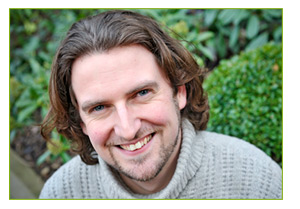 Make Yourself Better
Make Yourself Better
Restoring Your Body’s Wellbeing through Ancient Medicine
with Philip Weeks, Master Herbalist & TCM Practitioner
Applying his deep understanding of holistic medical traditions from both East and West, Philip Weeks guides the reader through the process of restoring the body’s wellbeing using a simple combination of natural techniques, diet and herbal medicines. He explores five key interconnected areas through which wellbeing can be attained – nourishment; detoxification; lifestyle; activation; and mind, emotions and spirit – based on his analogy of the wheel of health.
Philip’s new book Make Yourself Better: A Practical Guide to Restoring Your Body’s Wellbeing through Ancient Medicine will be available to purchase at the event.
Philip Weeks is a leading expert on natural medicine and nutrition and is a master herbalist and acupuncturist. He is an engaging, informative presenter and is renowned for his deep understanding and knowledge of ancient medicine. He is well versed in Ayurvedic, Arabic, Chinese and Greek medicine and utilises these systems by making them relevant to today. Philip is known for his pioneering, passionate and positive approach to helping people achieve their optimum health. He is a frequent lecturer on herbal medicine and holistic health.
Event Details
Place: The Nutri Centre Bookshop, 7 Park Crescent, London W1B 1PF
Date: Wednesday, 29th February 2012
Time: 7pm to 8.30 pm (approx).
RSVP: No need to book! Just bring yourself – and a friend – along!X
